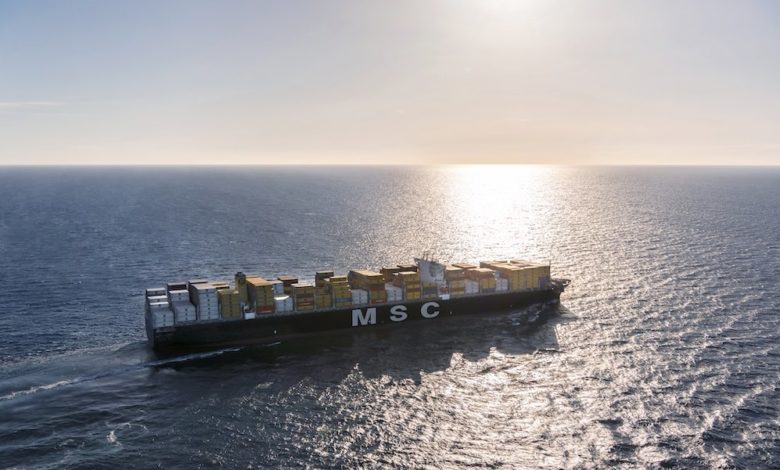‘Startling’ amount of boxships changing hands confounds the doomsayers

Many analysts have been suggesting container shipping’s boom period is coming to a close, pointing to myriad freight indices that have been in retreat for months. However, no one seems to have told tonnage hungry boxline operators who continue to snap up ships in high volumes and at incredible prices.
There is a “startling” amount of secondhand containership business at the moment, according to a new report from brokers Braemar.
Braemar reports in its latest weekly container shipping report on speculation that a fleet of up to six vessels all with deliveries next year sized between 2,500 and 7,000 teu have been sold to a major Europe-based liner company.
Mediterranean Shipping Co (MSC), which has bought more than 200 secondhand ships in the last 24 months, is tipped to have bought a pair of 9,400 teu ships, while CMA CGM has paid a firm $75m for a nine-year-old, Chinese built, 3,756 teu ship called Cap Capricorn, a vessel that would have cost less than one-third of the price when brand new in 2013.
Feeder ships also continue to change hands with Vietnamese interests snapping up the 14-year-old, 1,708 teu A Roku for $30m.
“All deals mentioned are transactions at still astonishingly high levels, so for all the talk of freight rates falling, interest rates rising and life generally about to become more difficult, the liner operators see something others cannot,” Braemar stated, going on to suggest that with prices at these levels more sellers may appear in the coming weeks.

The proverbial “Pride comes before a fall” springs to mind.
Suggestion, the major lines have a lot of spare cash, and an interest in keeping competitors (and even worse ‘customers’) from joining the industry. Snapping up lots of smaller vessels at high rates when you can afford it, forcing startups into an unviable situation as soon as prices drop would probably be considered ‘fair game’ if i was MSC (or ‘another major European liner’ if its not MSC! 🙂 ) . The established big lines are too long in the tooth to get seriously stung here i feel, they must know exactly what game they are playing in this respect? it might not be exactly my answer that they are up to – but i am suspicious of something very like this being played out?
I think you are probably right. The big lines don’t have to bid on everything; they just need to pay a lot for a few.